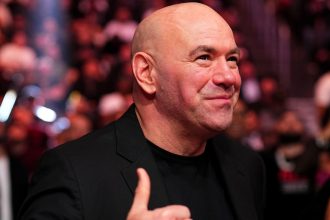Dear Big Move,
I am a first-time home buyer with an 810 credit score and no debt of any kind.
People keep telling me that it’s a bad idea to buy a $450,000 house outright with cash.
I get the argument that I could put that money to work in the markets, but I hate the unpredictability of spreading payments over 30 years where financial circumstances can change.
I have the money now, it’s only around 30% of my liquid net worth, and I love the thought of owning my home free-and-clear and never having to worry about housing again.
I could understand their perspective if interest rates were still at 2% to 3%, but it’s a different ball game nowadays.
What should I do?
Eager
‘The Big Move’ is a MarketWatch column looking at the ins and outs of real estate, from navigating the search for a new home to applying for a mortgage.
Do you have a question about buying or selling a home? Do you want to know where your next move should be? Email Aarthi Swaminathan at [email protected].
Dear Eager,
Kudos to you for saving enough money to be able to put down $450,000 easily on a home.
You need to decide on your goal. Do you want to own a home simply to live in, or do you consider buying this home as part of a broader investment strategy?
If you simply want to be able to own your home free and clear, and not be indebted to anyone, it makes sense for you to put that money into a home.
Furthermore, why pay interest when you have the means to close out the sale in one go? You also don’t have to wait on an insurance provider to get your policy into place, and you also will pay lower closing costs.
“Paying cash also provides a more attractive offer to the seller as it’s generally a faster closing process, which would also not include a mortgage contingency,” Brandon Goldstein, a financial planner with Prudential Advisors, told MarketWatch. “You might even get a better purchase on the house with an all-cash offer!”
But don’t forget to consider the idea that there’s “good” and “bad” debt.
Using a mortgage to buy a home falls under the “good debt” category. If you own a home, you’re able to borrow money at a rate, albeit high, and put your substantial cash pile into the markets, or other investment opportunities.
Your home should, all going well, appreciate in value, and you’ll also be able to further maintain your already excellent score. Your net worth should increase in the process.
Tax advantages are also worth taking into account for those considering taking out a mortgage. You can deduct mortgage interest and lower your income-tax bill, assuming that applies to you.
And if you end up needing to sell and buy a new home before your sale closes, the mechanics can get tricky if you don’t have enough money for a downpayment.
If an emergency were to arise? “You still have approximately twice what the house is worth in liquid assets,” he added.
Additionally, should your home require extensive repairs and renovations, or you have other financial issues that come up over time, you’ll need to make sure you have enough of a buffer.
“Based upon the background information provided, it sounds as if paying cash for the house is a good idea,” Goldstein said.
All things considered, it seems like your plan to buy with cash is a solid one.
By emailing your questions, you agree to having them published anonymously on MarketWatch. By submitting your story to Dow Jones & Company, the publisher of MarketWatch, you understand and agree that we may use your story, or versions of it, in all media and platforms, including via third parties.
Read the full article here





